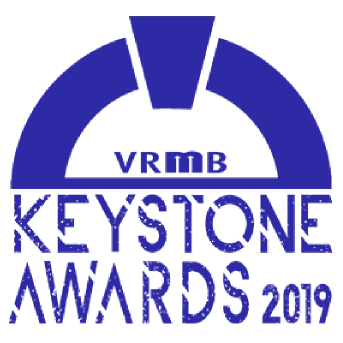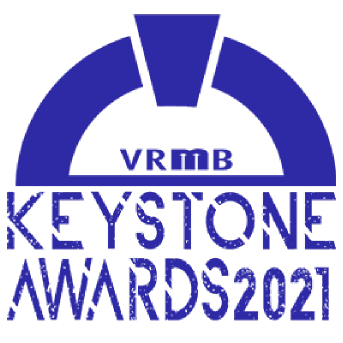Vermont Guide to Short-Term Rental Regulations in 2023
Disclaimer
Short-term rental regulations are in a constant state of change. The below resource is updated when possible, but it should not be taken as legal advice. It is critical that you consult with a legal advisor to ensure you are taking the necessary steps to keep your business safe and legal.
Short-term rental regulations in Vermont can be hard to find and understand, especially at the local level. Here’s a look at proposed or legislated Vermont short-term rental laws to help property managers and vacation rental owners better run and ultimately scale their businesses.
Vermont Laws Related to Short-Term Rentals
There are no current state laws or regulations in effect regarding short-term rentals. All short-term rental regulations happen on a local level.
However, there is much debate circling the short-term rental industry in the state of Vermont. Some local governments have enacted short-term rental regulations across the state, with more and more cities considering regulations.
The state of Vermont requires short-term rental operators to include their Vermont Meals and Room Tax account number with any advertisement of the short-term rental. Vermont law states that you must post the following in a short-term rental property:
- Contact information to the person (or business entity) responsible for the maintenance of the unit.
- Contact information for both the Department of Health and the Department of Public Safety’s Division of Fire Safety.
Plus, if you’re considered a short-term rental internet platform, or you list rentals on your own website or platform and are based in Vermont, then you need to collect and file additional reporting on all transactions that occur on the platform. The state provides a template you can download and utilize for reporting purposes.
Finally, if your rentals total 15 days or more in a year, you are required to collect and pay the 9% Vermont Meals and Rooms Tax. And depending on where your property is located, you may also be required to collect and pay a 1% local option tax.
Proposed legislation for short-term rentals in Vermont
In 2021, Vermont Governor Phil Scott vetoed a bill that would have established a state-wide registry for short-term rentals. However, as of February 2023, a new omnibus housing bill has been proposed, which includes provisions on data collection for short-term rentals.
Meanwhile, on top of the 9% Meals and Rooms tax required by the state of Vermont, short-term rental operators must pay an additional 9% gross receipts tax on any income they earn from their short-term rental, which is important to take into consideration for vacation rental revenue management purposes.
Burlington
After years of debate, the city of Burlington approved laws for regulating short-term rentals in June of 2022. The city defines short-term rentals as units that are rented out to a guest for less than 30 consecutive days, and they must be rented out for more than 14 days in the period of a year.
Burlington divides short-term rentals into partial units, which is a room located within a host’s primary residence, or whole units, which is an entire dwelling. In the majority of cases, only on-site units are permitted, meaning a host has to reside at the property they rent out. This could be a room in a home or a guest house on the same premises as a primary residence.
This makes managing a vacation rental remotely virtually impossible in Burlington. However, in some circumstances, hosts are permitted to rent off-site units, for example in the case of seasonal homes.
Short-term rental operators in Burlington are also required to register their rentals by April 1 every year, and in most cases, hosts can only register one short-term rental.
Chester
In December 2022, the town of Chester adopted a short-term rental ordinance that requires vacation rental operators to register with the town, pay a registration fee, and abide by health and safety regulations.
When a vacation rental operator registers their property, they must provide a series of documents, including proof of liability insurance and the host’s name, mailing address, email, and phone number.
And in the case of units with more than eight occupants, hosts must provide documentation regarding sewer or septic capacity, plus an approved inspection report and certificate of occupancy from the State of Vermont Division of Fire Safety.
The registration fee is $150 per year for hosted short-term rentals (units within a host’s primary residence), while operators of unhosted rentals must pay $300 per year. Chester limits short-term rental unit capacity to two guests per bedroom plus two additional guests.
Killington
Short-term rentals are incredibly popular in Killington, and the city defines them as properties that are rented out for less than 30 consecutive days to one guest and are rented for 14 days or more a year.
Killington requires short-term rental operators to register their rentals with the Zoning Administrator. You must submit a separate application and pay a separate permit fee for each STR you operate, and applications must be renewed each year by November 15.
The city has also set an STR dwelling capacity of two guests per bedroom plus two additional guests, and if your property can host more than eight guests, you’re required to provide an inspection report with occupancy approved by the state Division of Fire Safety.
Regardless of the size of your property, all vacation rental operators must fill out the “Short Term Rental Safety, Health and Financial Obligations” form and post it inside their units, as well as provide proof of short-term rental insurance.
Additionally, on-street parking for short-term rentals in Killington is not permitted—properties must provide off-street parking to guests. Finally, each short-term rental operator must be available by phone at all times the property is in use.
South Burlington
While there are currently no short-term rental laws in South Burlington, the city recently drafted an ordinance that would place regulations on short-term rentals and create a rental registry for the thousands of units in the city.
Proposed in Spring 2023, the new ordinance would require short-term rental hosts to reside at the property they rent out and would make it mandatory to register each short-term rental with the city, as well as pay a registration fee.
Stowe
At the moment, Stowe short-term rentals are not regulated. However, all short-term rental property managers, owners, and hosts must abide by state law, meaning they must collect and pay the 9% Vermont Meals and Rooms tax, as well as the town’s 1% local option tax.
Hosts are required to publish their Vermont Meals and Rooms tax number in any advertisements for the unit, and within the unit they must post their phone number, as well as contact information for the Department of Health and the Department of Public Safety’s Division of Fire Safety.
Finally, short-term rental operators in Stowe that operate three or more units are required to obtain a food and lodging license.
Woodstock
The city of Woodstock, Vermont, currently regulates and limits the use of short-term rentals. The city defines short-term rentals as properties that are rented out for fewer than 30 consecutive days, and hosts are required to obtain a permit before renting out their property.
STR operators in Woodstock are permitted to rent out their property a maximum of six times per year (meaning six distinct stays) within the Village of Woodstock and ten times per year within the city of Woodstock (this excludes the foliage season).
Hosts are also required to provide on-site parking to guests, as well as display a notice to renters regarding parking, garbage, and noise limits visibly somewhere within their unit. They must also display their short-term rental permit within the unit.
| Want to make running your short-term rentals in Vermont as seamless as possible? Hostfully’s property management software makes your job easier and boosts bookings. Request a demo today! |
Frequently asked questions about short-term rental regulations in Vermont
Are short-term rentals allowed in Vermont?
There is no Vermont ban on short-term rentals, meaning the state permits STRs. Vacation rental operators are just required to pay the Vermont Meals and Rooms tax if they rent their property out for 15 or more days per year. However, there are certain cities that have their own specific regulations, like Killington, South Burlington, Burlington, and Stowe.
What’s the tax on Airbnb in Vermont?
If you run a short-term rental in Vermont, state laws require you to collect and remit a 9% Vermont vacation rental tax, also known as a Meals and Rooms tax. And depending on what city your rental is located in, you may also have to pay a 1% local options tax.
Is Airbnb allowed in Burlington VT?
Airbnb is allowed in the city of Burlington, but local laws require hosts to live on the same property as the unit they operate (except for in limited circumstances). They are also required to register their unit with the city and in most cases are limited to registering only one short-term rental.






